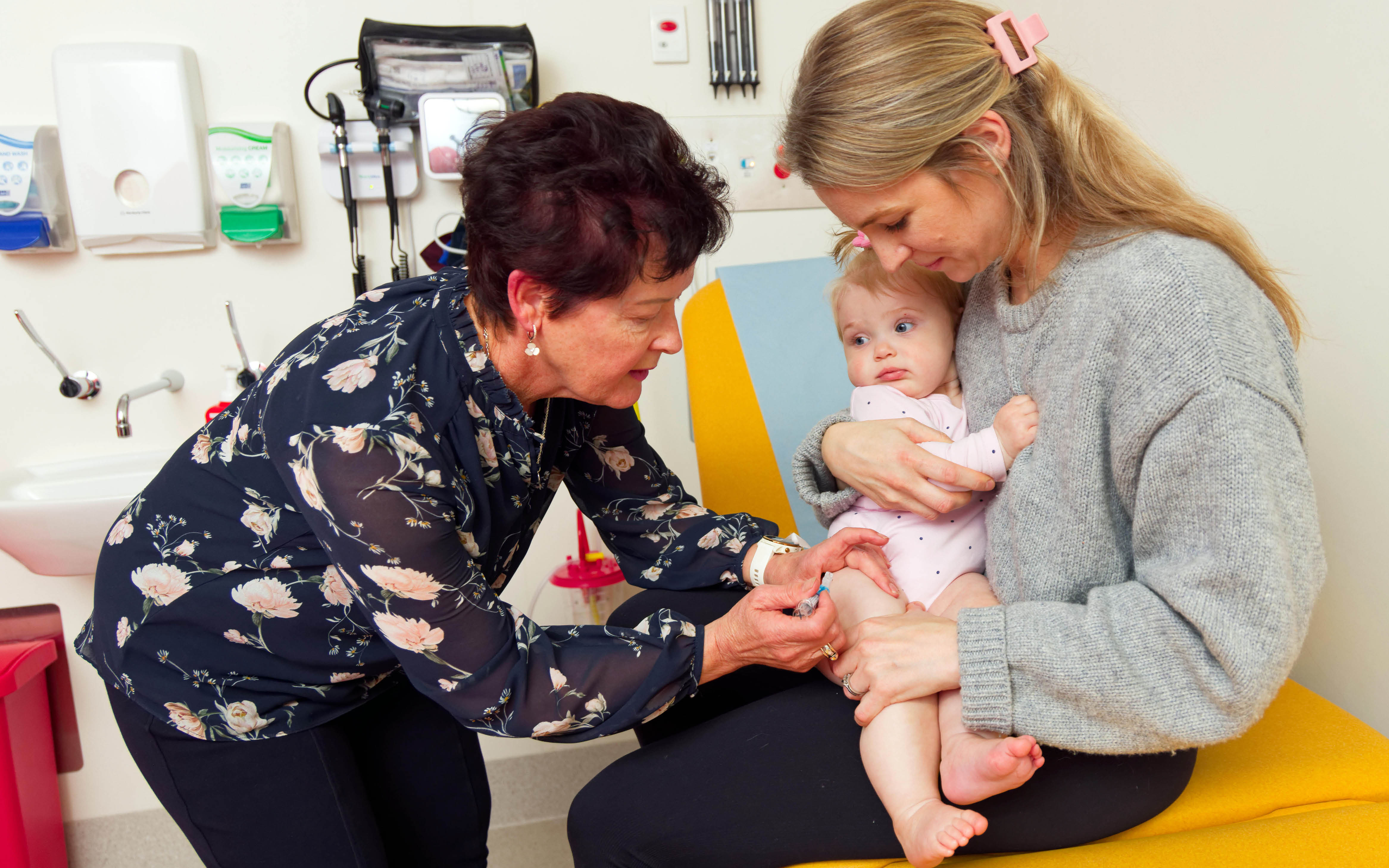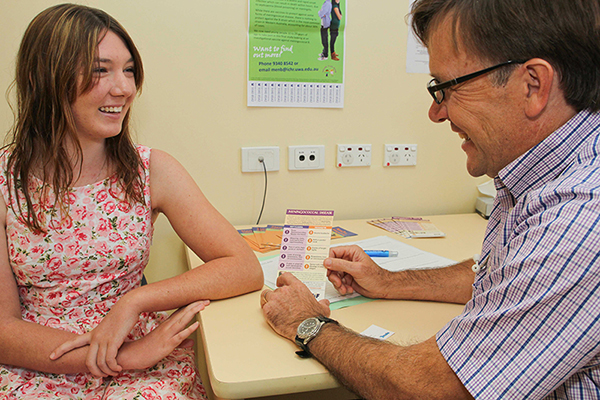Meningococcal disease is caused by the bacteria Neisseria meningitidis, or 'meningococcus'.
It is an uncommon but very serious disease that can result in death if not recognised and treated quickly.
Meningococcal disease can present as meningitis (infection in the fluid surrounding the brain), septicaemia (blood poisoning which can damage the organs of the body), or a combination of both.
While most people will recover from meningococcal disease, around 10% of cases are fatal, and between 10-30% of surviving children and adolescents are left with brain injury and/or deafness, severe scarring or amputated limbs.
Babies and young children less than 5 years old, teenagers and young adults have the highest risk of contracting meningococcal disease.
Signs and Symptoms
Symptoms in babies include fever, rapid breathing or panting, vomiting or difficulty feeding, irritability, lethargy or difficult to wake, unusual crying or moaning and the appearance of a spotty red-purple rash that looks like small bleeding points beneath the skin. It is very important to get this type of rash checked by your doctor promptly
Older children and adults may also experience headache, vomiting and diarrhoea, neck stiffness, muscle or joint pains and drowsiness/confusion.
Meningococcal variants
There are 13 known variants, or serotypes, of meningococcus, although only 5 of these are known to cause disease - A, B, C, W and Y. The proportion of serotypes found in the community can vary depending on the season and location. MenC was previously the most common serotype seen in Australia, however recent data shows that 75% of meningococcal disease in Western Australia is now caused by MenW, followed by MenB and MenY.
The important feature of meningococcal serotypes is that they are just different enough to trick our immune system into thinking they are not the same bacteria. This means that if you have immunity to one serotype (e.g. MenC), you won't be protected against the other serotypes, and there is no single vaccine that protects against all serotypes of meningococcus.
Meningococcal vaccines
Vaccination against meningococcus is the most effective way to prevent disease.
MenACWY in babies and young children
All babies are now offered a free Meningococcal ACWY vaccination against the A, C, W and Y serotype when they turn 12 months old. This replaces the infant MenC vaccine program introduced in 2003, which resulted in a marked decline in this strain of the disease but did not cover multiple strains.
The WA Government is also providing a free ‘catch-up’ MenACWY vaccine to children aged 1 – 4 years until the end of 2018. Parents should contact their local GP or Child Health Clinic to schedule an appointment for their child.
MenACWY in teenagers
The WA government has provided the MenACWY vaccine free to teens and young adults aged 15-19 thoughout 2017-2018. This age group is targeted because many cases of meningococcal disease occur in older teens and young adults, and by vaccinating the group who are more likely to carry the bacteria, it is expected that the majority of MenW type bacteria circulating in the community will be eliminated, reducing the risk of infection for everyone.
As of April 2019, the MenACWY vaccine will be added to the National Immunisation Schedule and provided free to all teenagers throughout Australia aged 14 – 19 years.
For more information about the MenACWY vaccination programs, please see the WA Department of Health.
The MenACWY vaccine can be purchased privately for those outside of the funded age brackets, please speak to your GP for further information.
MenB Vaccine
A safe and protective Men B vaccine is available but not funded by the state or national immunisation program. The MenB vaccine is available to purchase privately through your GP and the number of doses required will depend on the age of the person.
Our research impact
- A series of The Kids Research Institute Australia studies looking at safety and persistence of protective antibody responses for Meningococcal ACWY vaccines in children has led the way for its use in Australia after a significant rise of W strain infections.
- Results have been available to help inform government policy at a critical time, allowing young people to be protected from Meningococcal W when they are most at risk.
- Meningococcal B vaccine studies in teenagers and young adults have contributed to the vaccines being licensed in Australia and overseas. A Men B vaccination program in South Australia is currently underway to examine the impact of immunising large community groups against the disease.
Learn more about the Wesfarmers Centre of Vaccines & Infectious Diseases.


